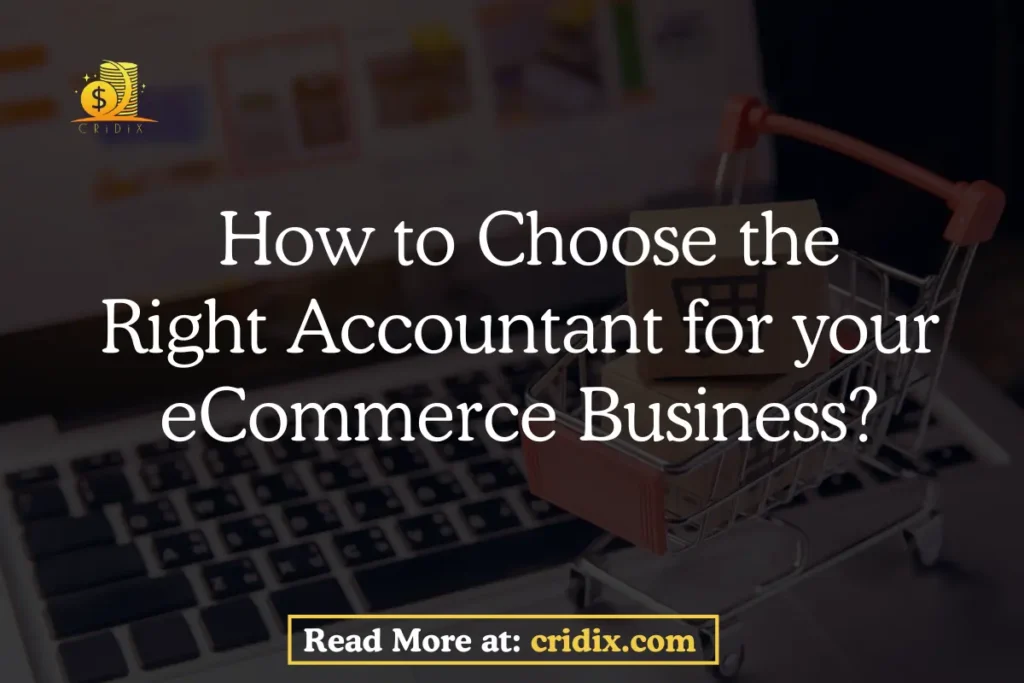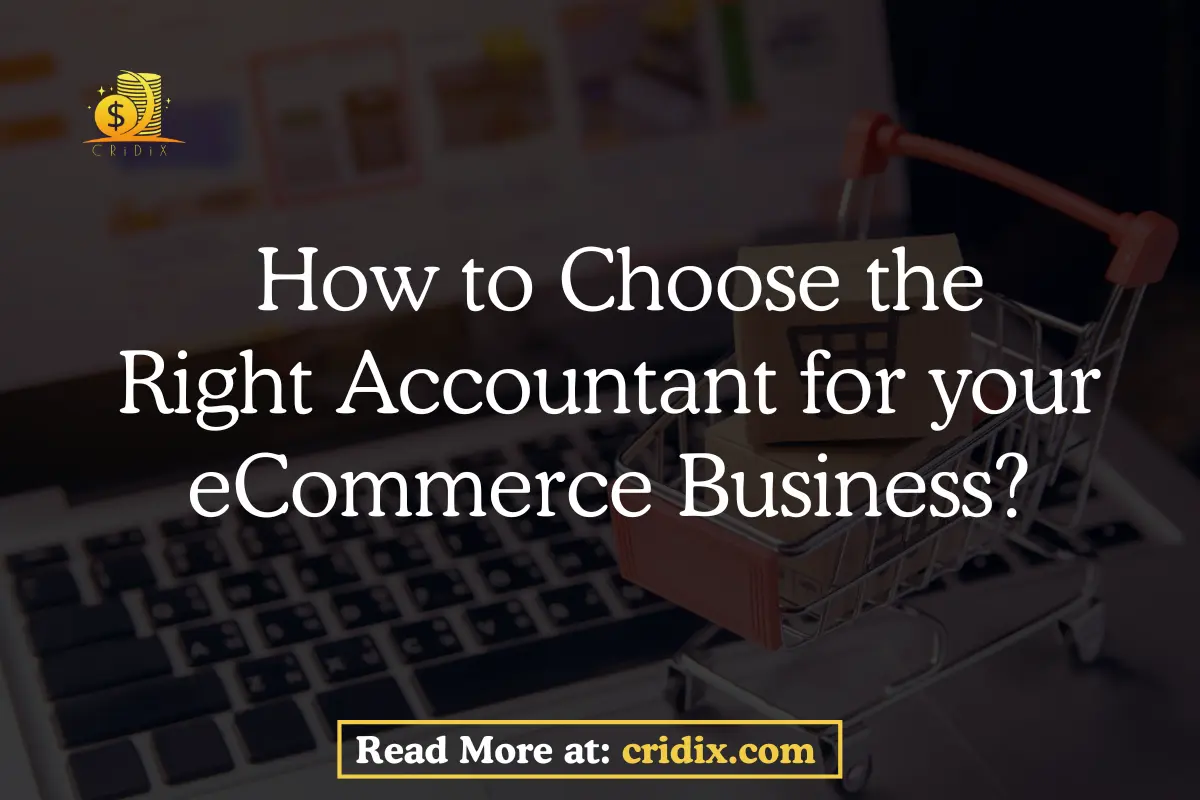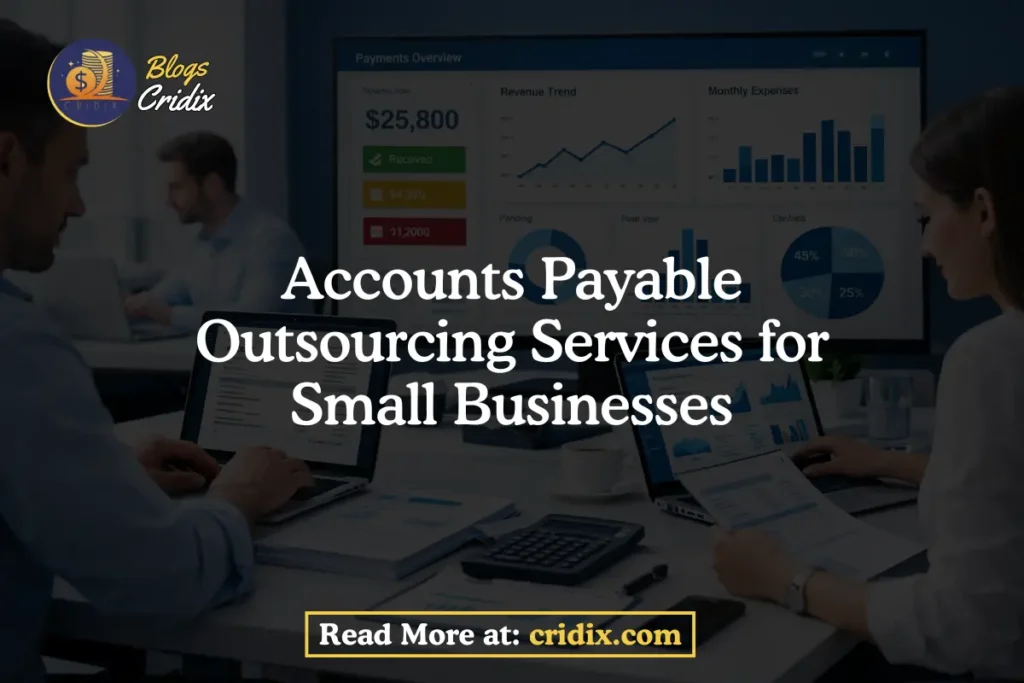
Introduction to Accountant for eCommerce Business
In the rapidly evolving landscape of online commerce, eCommerce accounting stands as a cornerstone for businesses navigating the complexities of digital transactions. As the digital marketplace continues to expand, the need for specialized accounting practices tailored to eCommerce operations becomes increasingly paramount.
From meticulously tracking sales and inventory to navigating intricate tax regulations and optimizing profitability, eCommerce accounting serves as the financial compass guiding businesses through the complexities of online transactions.
In this article, we will discuss in detail the critical role of eCommerce accounting, exploring its significance and guiding through how to choose an eCommerce Accounting Expert for the long-term success of online businesses in the dynamic digital landscape.
Importance of Accountant for eCommerce Business
E-commerce accounting is very crucial, especially in an environment where online transactions are growing at an exceptional rate. eCommerce accounting helps assess how well the business is doing financially by tracking metrics like sales, profits, and expenses.
It provides insights into important metrics such as cost of goods sold, gross profit margins, and customer purchase costs, assisting in making informed decisions to improve business performance. By analyzing financial data, businesses can optimize pricing strategies, streamline operations, and allocate resources effectively to maximize profits.
Proper eCommerce accounting procedures ensure compliance with tax regulations and financial reporting standards, reducing the risk of penalties and legal consequences. Ultimately, eCommerce accounting serves as the financial foundation for successful online businesses, enabling them to succeed in the competitive digital marketplace.
Four Key Elements of eCommerce Accounting
Understanding the key components of eCommerce accounting is essential for managing finances effectively and ensuring compliance with regulatory requirements. Four fundamental components play a pivotal role in eCommerce accounting:
Let’s discuss each of these components in more detail.
Cost of Goods Sold
Cost of Goods Sold represents the direct costs associated with the production of goods sold by a business. In eCommerce, it includes expenses such as manufacturing costs, shipping fees, and any other costs directly related to fulfilling orders.
Purchase Order
Purchase orders are the shopping list in the world of e-commerce. They’re formal requests sent to your suppliers, detailing what you need, how much, and when you need it. Purchase orders streamline the ordering process, ensuring your inventory stays stocked and your customers stay satisfied.
Sales Order
A sales order is a document generated by a seller in response to a purchase order. These documents capture the details of each customer transaction, from what they’ve bought to where it needs to go. Sales orders are the backbone of order fulfillment, keeping your operations humming along smoothly. In eCommerce, sales orders are often generated automatically upon receipt of a purchase order.
VAT or other Taxes
Value-added tax (VAT) or other applicable taxes are levied on the sale of goods or services. In eCommerce accounting, it’s essential to accurately calculate and account for these taxes to ensure compliance with tax regulations in the business operations. This may involve charging VAT or other taxes to customers and remitting them to the relevant tax authorities.
How to Choose an Accountant for eCommerce Business
Selecting the right accountant for eCommerce business is crucial for ensuring accurate financial management, compliance with tax regulations, and strategic decision-making. Here are some key steps to help you choose the best accountant for your eCommerce business:
Determine Your Needs
Before searching for an accountant, assess your eCommerce business’s specific accounting needs. Consider factors such as the volume of transactions, complexity of inventory management, international sales, and tax obligations. Identifying your requirements will help you find an accountant with the expertise and experience relevant to your business.
Evaluate Industry Knowledge & Experience
Assess the accountant’s understanding of eCommerce industry trends, regulatory requirements, and tax implications. Ensure that the accountant you choose holds relevant qualifications and certifications. An accountant knowledgeable about online sales platforms, marketplace dynamics, cross-border transactions, and digital payment systems can provide valuable insights and guidance tailored to your eCommerce business needs.
Review Client Reviews & Testimonials
Seek feedback from other eCommerce businesses or clients who have worked with the accountant or accounting firm you’re considering. Client testimonials, case studies, and references can offer valuable insights into the accountant’s reliability, communication style, responsiveness, and ability to deliver results.
Find an Expert in Cloud Accounting Software
When you’re hiring an accountant for eCommerce business, make sure they’re not just number-crunchers – they need to be tech wizards too! Why? Because e-commerce is all about leveraging the right software to manage your money smoothly. Look for accountants who know their way around accounting and cash flow management software like Xero or QuickBooks Online. These tools are best for your finances, with everything from sales tax tracking to payroll management all in one place.
Plus, they integrate seamlessly with your sales platforms and payment services, making your financial life a whole lot easier. So, when you’re interviewing potential accountants, ask them about their tech skills – it could save you a ton of headaches down the road as your business grows.
Communication and Accessibility
Effective communication is essential for a successful accountant-client relationship. Evaluate the accountant’s responsiveness, availability for consultations, and willingness to explain financial concepts in a clear and understandable manner. Choose an accountant who values open communication and proactively addresses your concerns.
Schedule Consultations & Conduct Interviews
Schedule meetings with ecommerce accountants to discuss your business’s goals, challenges, and expectations. Use this opportunity to assess the accountant’s professionalism, expertise, and compatibility with your business culture. Choose an accountant for eCommerce business who demonstrates a genuine interest in your success and understands your vision for growth.
Highly recommend
Cridix’s e-commerce accounting services stand out as a top choice for businesses navigating the complexities of online commerce. With a dedicated team of experts well-versed in the landscape of e-commerce accounting, Cridix ensures that your financials are in capable hands. Their tailored solutions are designed to streamline your accounting processes, from managing the cost of goods sold to handling VAT and other taxes.
. By leveraging the latest technology and software, such as Xero or QuickBooks Online, Cridix empowers businesses to optimize their financial management efficiently. With a track record of reliability and excellence, Cridix comes highly recommended for e-commerce businesses seeking comprehensive and proficient accounting services.
Why Choose Cridix Accountancy?






SimplifyYour eCommerce Business
Financial Management with Cridix Premium Solutions
Final Words
In conclusion, selecting the right accountant for eCommerce business is a critical step toward ensuring financial success and compliance in the dynamic online marketplace. By considering factors such as industry experience, qualifications, communication style, and compatibility with your business needs, you can find an accountant who not only manages your finances effectively but also serves as a trusted advisor in navigating the complexities of e-commerce accounting.
With the right accountant for eCommerce business by your side, you can streamline your financial processes, make informed decisions, and propel your e-commerce venture toward sustained growth and prosperity.







